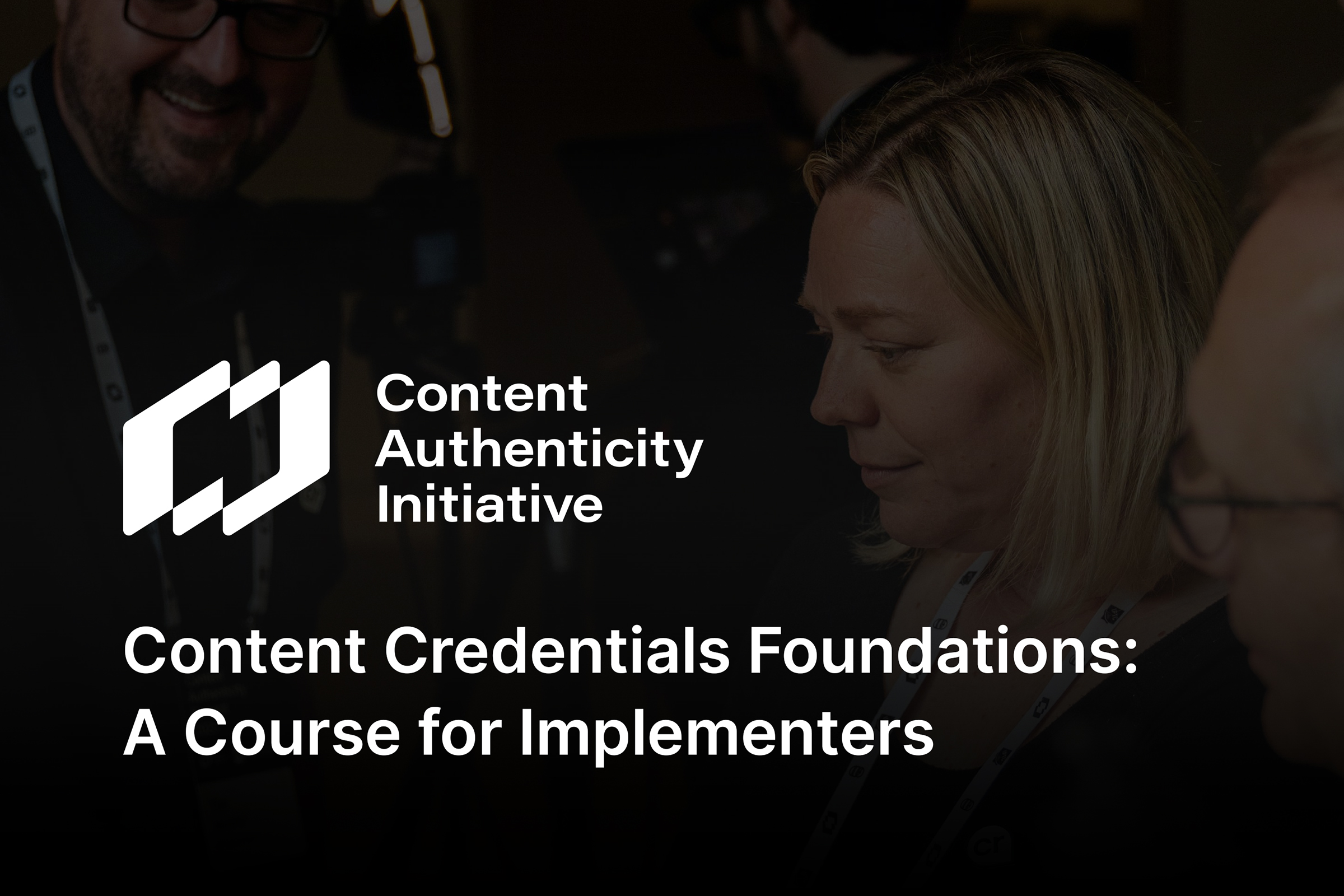Introducing Content Credentials Foundations: a course for implementers

Just over three years ago, the Content Authenticity Initiative introduced their open-source tools for implementing Content Credentials during a CAI virtual event. This marked the beginning of my startup’s journey in building tools for authentic workflows. At the time, the Coalition for Content Provenance and Authenticity (C2PA) specification had recently reached version 1.0, and much of the discussion centered around using provenance in digital media as a way to combat online mis/disinformation. Few could have predicted just how necessary the work of C2PA would become three years later as generative AI has exploded in popularity within both consumer and workplace apps.
It is now more important than ever to know the origin of an asset and what edits may have occurred to it over its lifetime. Creators and publishers also need to be able to attach verifiable attribution to content distributed online. The line between the authentic and the synthetic is quickly becoming difficult to determine, but through sustained effort, C2PA, the Creator Assertions Working Group (CAWG), and CAI open source SDK are well positioned to meet this moment. The last several years have seen many implementations of Content Credentials from cameras and AI generators to editing software and content delivery networks. And recently, the first officially Conforming Products were released.
To help sustain this momentum, I’m excited to announce Content Credentials Foundations. This is a new educational series that our team at Pixelstream is creating in partnership with CAI to share what we’ve learned in three years of real life C2PA implementations. Our goal is to expedite the time it takes to onboard your team and help you get your conforming products deployed into the C2PA ecosystem.
Implement Content Credentials with real-world use cases
This new video series will provide foundational knowledge of how to use the CAI open source SDK to implement Content Credentials. We’ll cover the main areas of C2PA and CAWG in a series of videos that illustrate the topics through example implementations. The course materials will be released at regular intervals and organized into three main sections including adding Content Credentials, reading Content Credentials, and a few advanced topics.
For much of the course, we’ll use the command-line C2PA Tool for demonstrations whenever possible, since it doesn’t require us to choose any one programming language. Doing this will also make the courses accessible to folks without a programming background. Some topics, however, will require us to do some coding to demonstrate the concept. Because the CAI Rust library is the foundation for the whole SDK, at a high level the approach is the same regardless of the language or tool being used. Given that the CAI Rust library serves as the foundation, the approaches remain the same regardless of which tool or language you choose to implement with.
Adding Content Credentials – During the section on adding Content Credentials to assets, we’ll jump right in and quickly show how to sign an asset. Then we will step back and go through each aspect of the C2PA manifest.
Reading Content Credentials – During the section on reading Content Credentials from assets, we will start by looking at the C2PA user experience guidance.
Advanced Topics – With much of the foundational knowledge under our belt, we can then approach several more common concerns and use cases.
Built with the support of the CAI Discord community
This course was designed not just as a series of tutorials, but as a shared learning experience for the CAI community. We have set up a dedicated forum channel on the CAI Discord server where each video will have its own forum post. This will allow community members to engage in discussion and ask questions. I check in on Discord regularly and am more than happy to help with any implementation questions!
You can access the video course at: https://learn.contentauthenticity.org
You can join the CAI Discord with this invite link: https://discord.gg/CAI